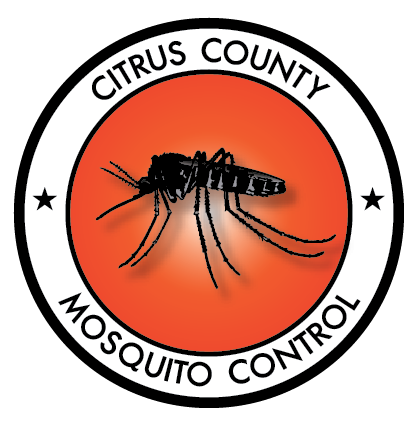SURVEILLANCE
Surveillance & Mosquito Control
Our surveillance program monitors mosquito populations and mosquito-borne disease activity throughout Citrus County. Our surveillance team is responsible for setting and retrieving our many mosquito traps, identifying mosquitoes caught in those traps, identifying larval and adult mosquitoes brought in by our field technicians, conducting insecticide resistance research, and testing and caring for our sentinel chickens.
Our lab is equipped with technological tools to help us conduct surveillance and practical research that can be applied to our program. By testing efficacy of various products, insecticide resistance in mosquito populations, and monitoring disease, we can be sure that we are using only the most cost-effective and efficient products that will help prevent mosquito-borne diseases from spreading to our citizens.

Field Surveillance
Our field technicians inspect sites for mosquito breeding. Our inspectors either wade through swamps and wetlands on foot to find mosquito larvae, or they take the airboat to inspect large water bodies. Inspecting lakes and rivers consists of pulling up aquatic plants like cattails, water lettuce, and water hyacinth for further inspection because there are three species of mosquito larvae that live in these aquatic plants' roots. Our helicopter can even conduct large area surveillance as well. Collected samples are then brought back to the lab for thorough identification under the microscope.
Trap Surveillance
We use various mosquito traps throughout the county to monitor mosquito populations. If there is significant increase in pestiferous mosquito abundance, and/or significant numbers of vector mosquitoes, then our surveillance team can determine what treatment efforts are necessary. These traps are set and retrieved weekly and collection data is recorded in our database.
Accurate trap counts, and thorough identification of mosquitoes results in more accurately targeted treatment efforts. Having historical records of trap data allows us to predict when and where mosquito hatch-offs may occur.
Disease Surveillance
Our sentinel chicken program consists of several chicken sites located around the county. Each chicken site contains 6 chickens from which blood is drawn from on a weekly basis. This blood is sent to a lab to be check for mosquito-borne diseases such as but not limited to: EEE (Eastern Equine Encephalitis), SLE (St. Louis Encephalitis), and WNV (West Nile Virus). Chickens are immune to these viruses and create anti-bodies. CCMCD monitors for these anti-bodies which gives us an early warning that a mosquito-borne disease is in a general area of the county and we can focus our efforts on that area.
Mosquito Research
Our surveillance team conducts research to determine insecticide resistance in local mosquito populations, and to test the efficacy of mosquito control products.
Discovering insecticide resistance allows us to know when mosquitoes are becoming immune to the products we use. Once we detect that mosquitoes are no longer being affected by certain treatments, we can tailor our program to target them with a product with either a different active ingredient or different mode of action.
Testing product efficacy allows us to determine the best mosquito control products for our program, and our local populations of mosquitoes. To do this effectively, we conduct field trials with mosquito cages as treatments occur either aerially or with the ULV spray truck. We then bring the mosquitoes back to the lab to determine mortality rates.
Our surveillance team is also responsible for maintaining mosquito colonies for research and public outreach purposes.





















